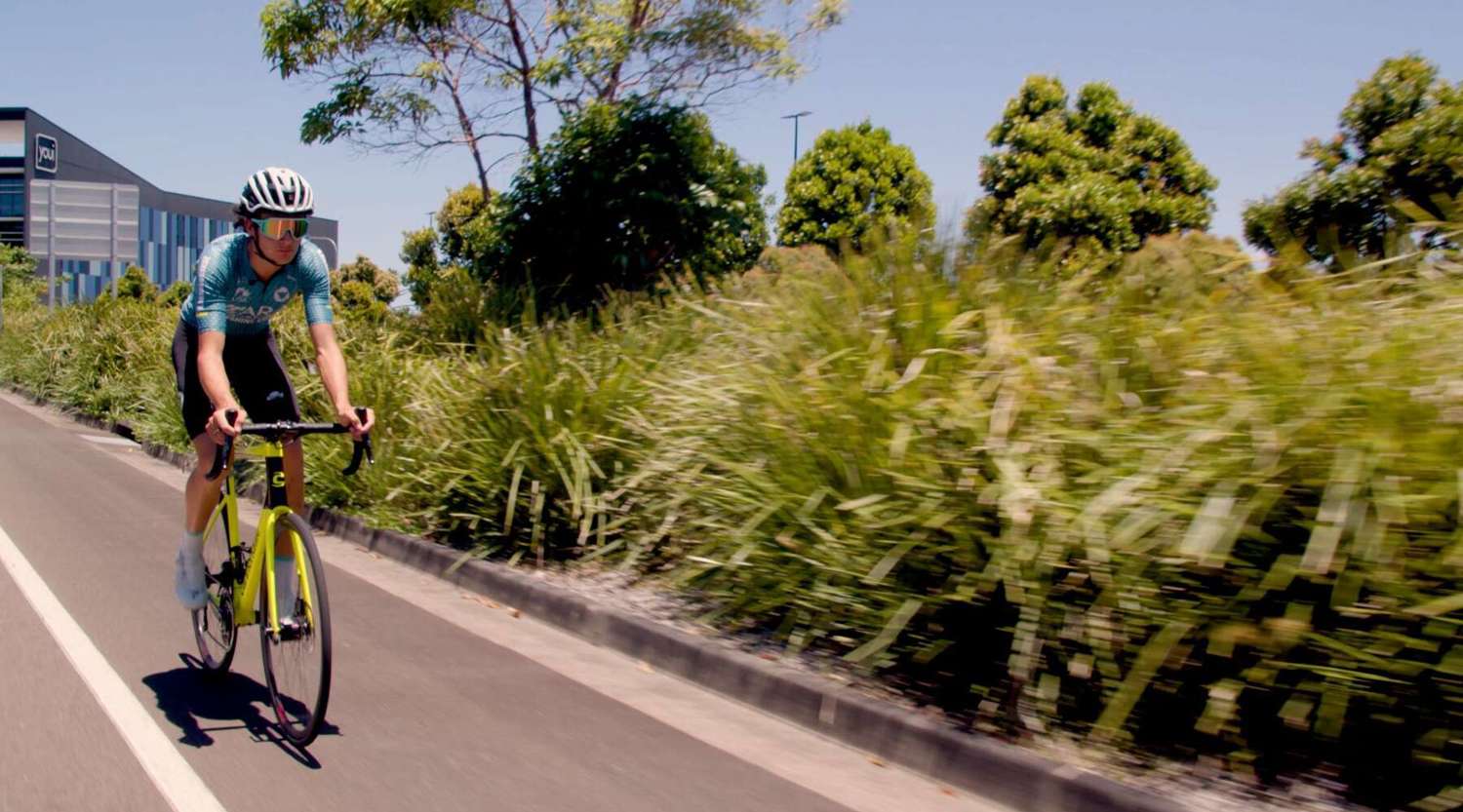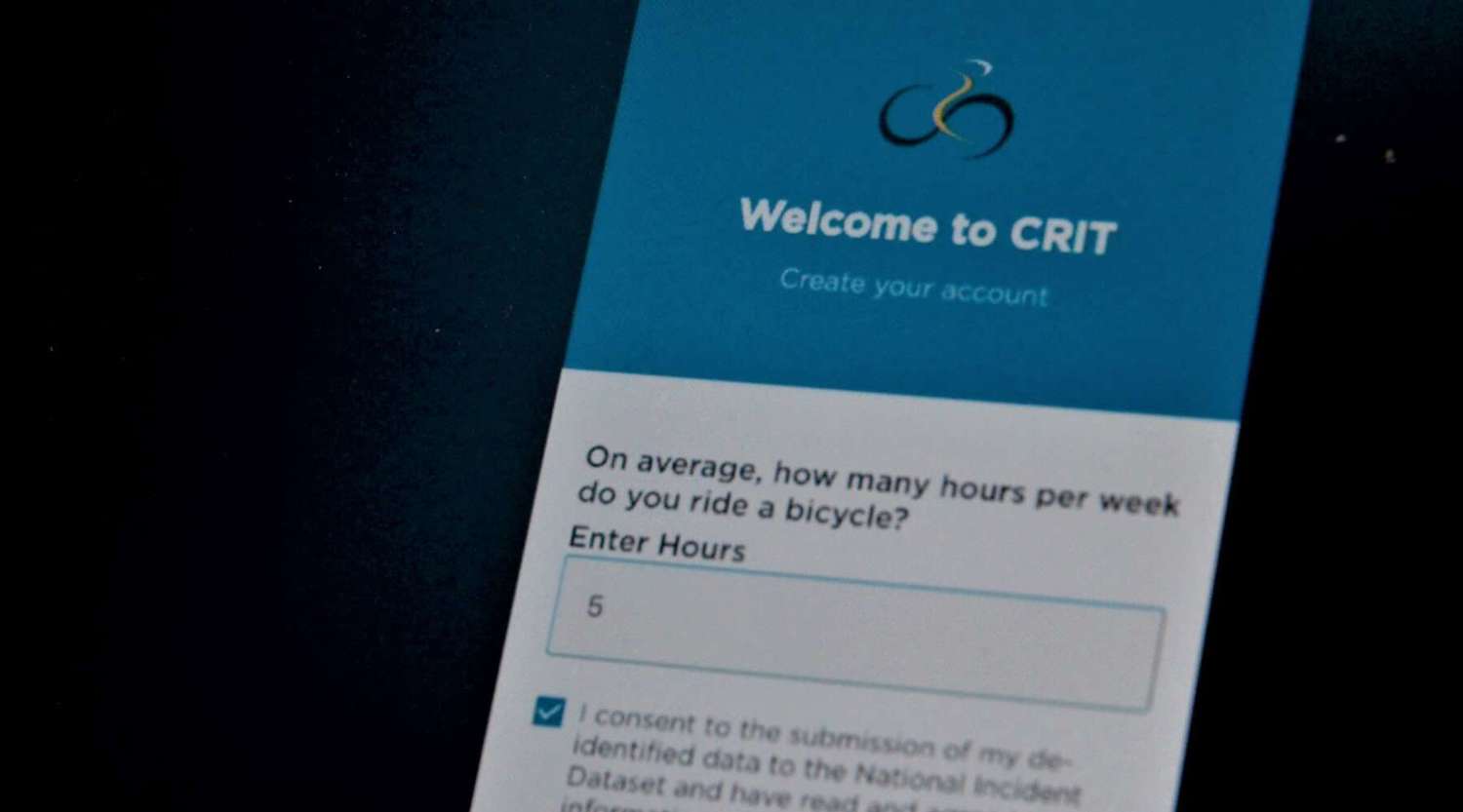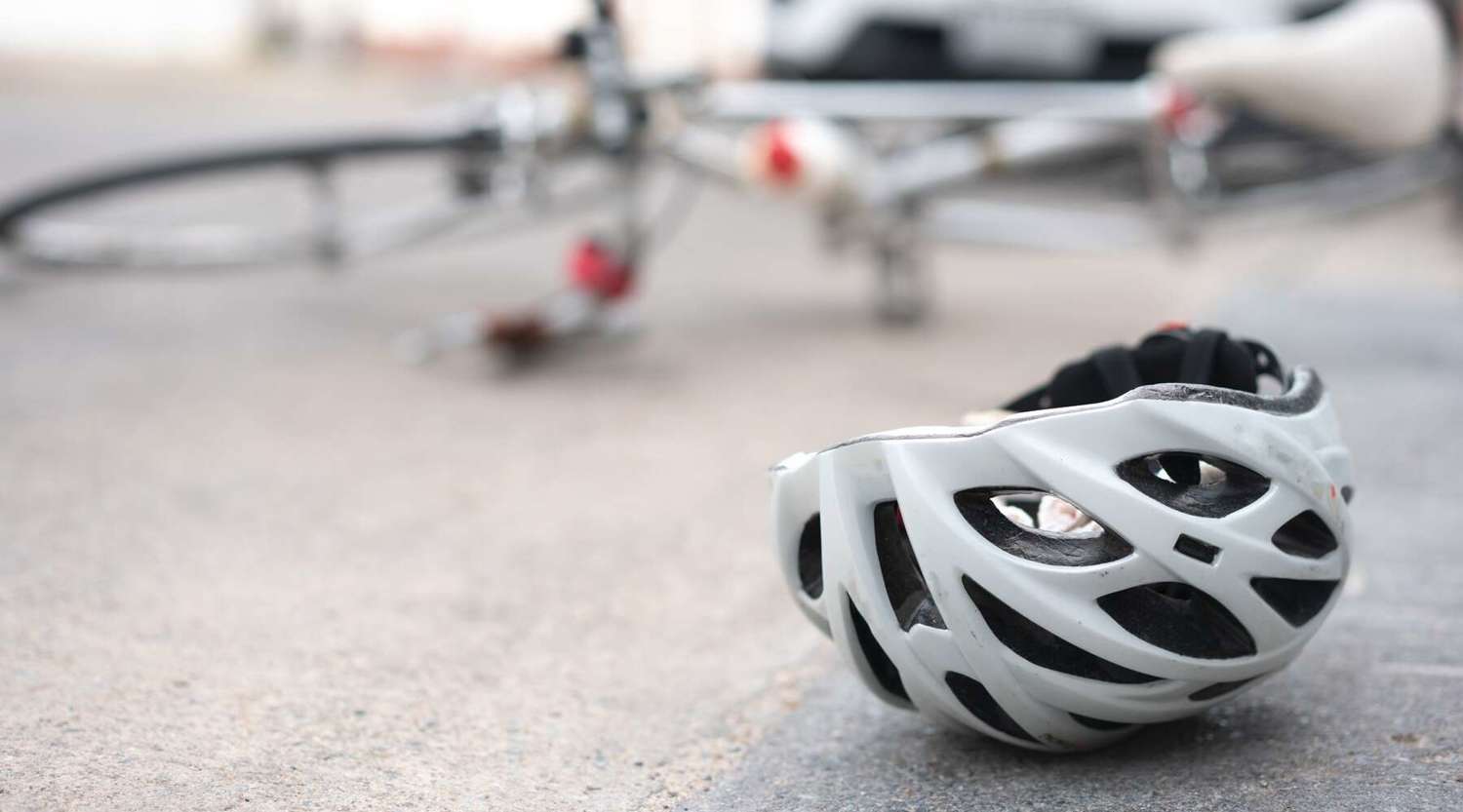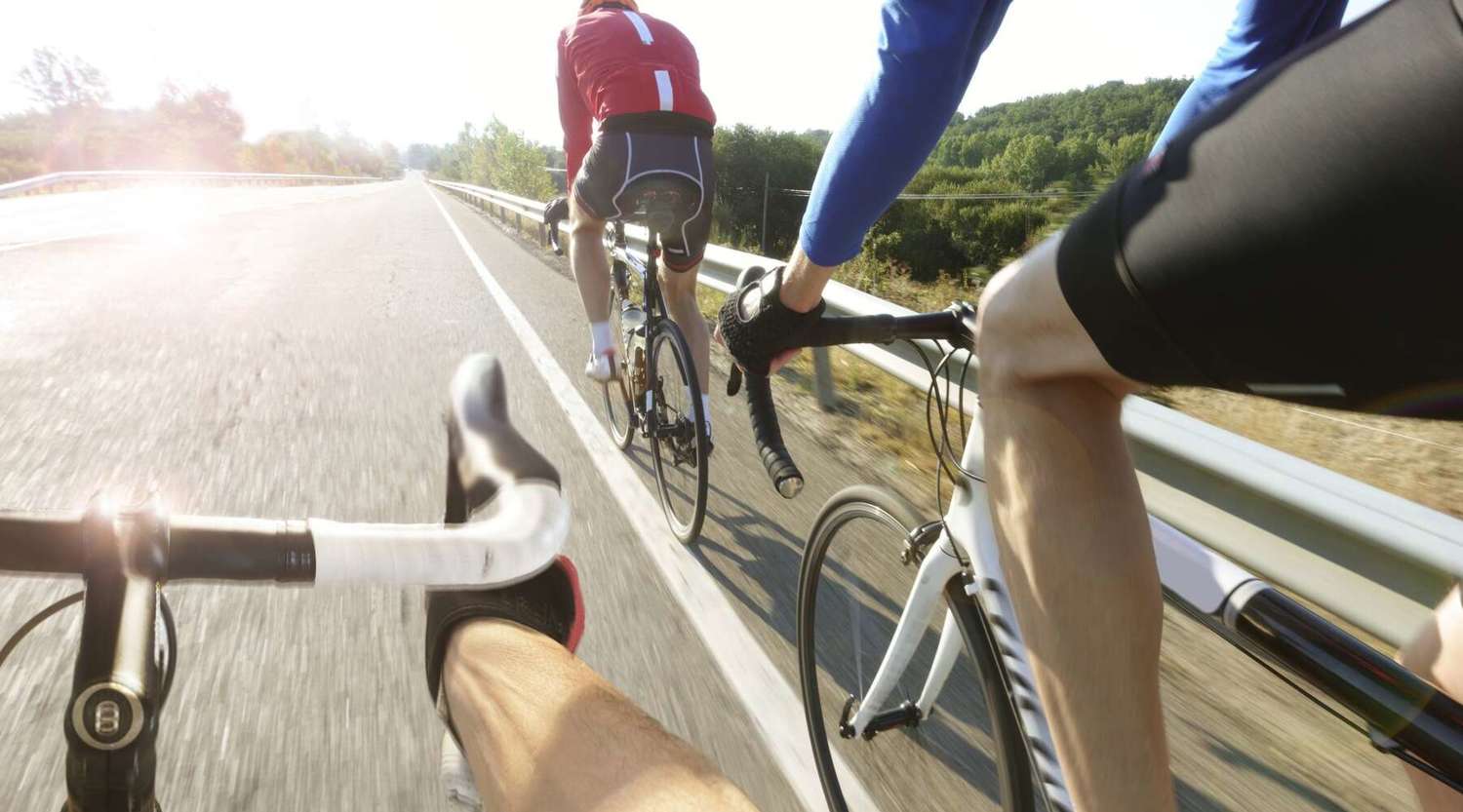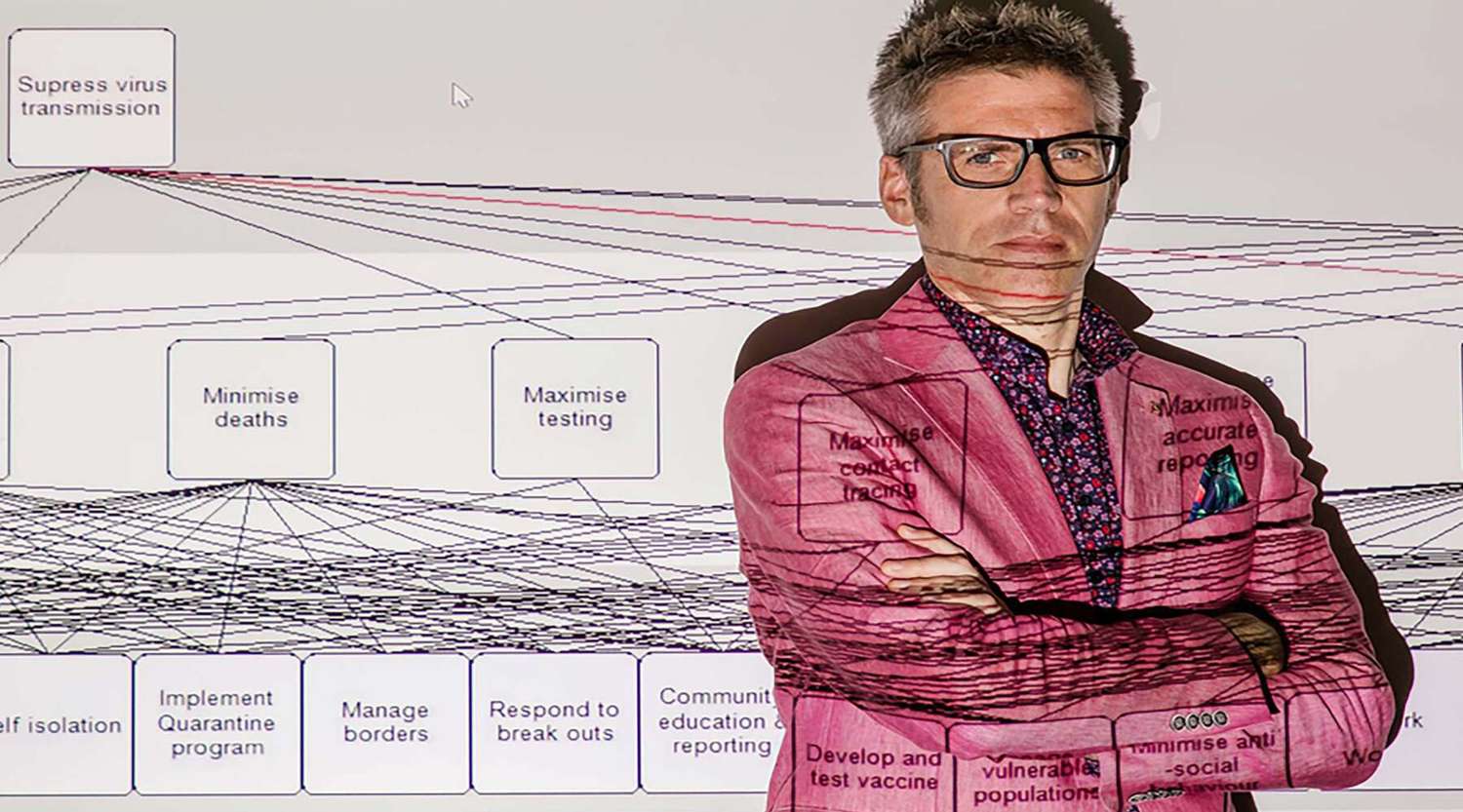How an app to report near misses could help improve safety for Australia's cyclists.
Most cyclists know what it is like to have a near miss. That split second, heart-racing moment when you just manage to avoid a crash or a nasty fall.
Unfortunately, others like semi-professional road racing cyclist Daniel Di Domenico are not so lucky. While many walk away from crashes with minor scrapes and bruises, often the injuries are significant. Sometimes they are fatal.
"It took skin off the right side of my body and I injured my back," says Daniel who was in a bike lane on a training run when he was hit by a car a few years ago.
And while he's healed physically, the psychological scars remain for the UniSC Clinical Exercise Science student who rides for ARA Pro Racing Sunshine Coast.
It has left me scarred. What happens if another car hits me next time. I might not come away so lucky. Daniel Di Domenico
Research has shown that cyclists can be up to 12 times more at risk of death than car drivers. In Australia, they make up one in five of all people injured on roads.
University of the Sunshine Coast Professor of Human Factors Paul Salmon says that every day there are also thousands of near misses that go unreported.
Until now.
Cyclists across Australia are being encouraged to log crashes – and near misses – through a new CRIT app being trialled by University of the Sunshine Coast researchers.
Professor Salmon says insights gathered by the app can be used to inform decisions and actions around road and cycle safety.
“This project is going to make a difference to understanding why cycling accidents happen, and how we can stop them happening in the future.” Professor Paul Salmon
From an individual cyclist deciding when and where to ride, to how we design our roads and cycle paths.
Introducing the CRIT app
The Cyclist Incident Reporting Tool (CRIT) app could be a game changer.
In the world-first initiative, researchers from UniSC’s Centre for Human Factors and Sociotechnical Systems, are gathering the most up-to-date data from cyclists across Australia to gain a comprehensive understanding of the risks they face on our roads.
“For a long time, cyclists haven’t had a quick and easy way to report crashes and near misses,” Professor Salmon said. “This has been a major gap in improving cycle safety and we wanted to fill it.”
Professor Salmon, who is the Director of UNISC's Centre for Human Factors Sociotechnical Systems, and Dr Scott McLean are trialling the new online cyclist incident reporting and learning system.
It is part of a 12 month study supported by a $99,489 grant from the Australian Government’s Road Safety Innovation Fund, a scheme that supports road safety research and the development of new, innovative road safety technologies and products.
"This is going to hurt" After years of racing short course triathlons, John bit the bullet, engaged a coach, started an intense training plan and entered his first Ironman competition.
"I had spent months of endless laps in the pool and clocking up kilometres on the bike and the running track in preparation for my first Ironman race in Cairns,” the Hervey Bay local said.
“It was the Saturday of the Easter long weekend and I headed out on ride with a group of mates at 4am along a country road to miss the traffic."
It was a decision that ended his Ironman career before it began.
“About 60km into the ride, I had my head down and was pushing on.” Then he hit a pothole.
"My instant reaction as I tumbled over the handlebars was thinking ‘this is going to hurt’."
“At first I didn’t think it was too bad but a hour later I was admitted to hospital and was flown to Brisbane for emergency surgery.”
“I had a lacerated kidney and wasn’t allowed to stand up for two weeks. When finally out of hospital, I had weeks of recovery ahead of me, and with that my Ironman dream was over.”
He says the fall initially affected his willingness to get back on the bike and has changed his whole approach to heading out for a ride.
“It has been seven years and I still won’t ride long distances without a group of people.”
In John's case, it was a pothole, possibly created by rain damage a week earlier, that caused his accident.
He is a big fan of the CRIT App project and its potential for saving others from experiencing what he did.
“As a cyclist you are always sharing your riding routes with others – where is good, where to avoid, what problem areas to navigate such as traffic or broken roads – like potholes.
“Having an app like this helps with sharing this information to keep us all safe on the roads and make sure we return home to our loved ones.”
Near enough is more than good enough. "Data on near misses is a critical source of information for understanding and preventing crashes,” says Professor Salmon. "Near-miss incidents provide free lessons about what is going on in a particular area as to the cause of incidents."
“Importantly, it also gives us some insights as to what prevented them so then we can make informed decisions about interventions that will actually enhance cyclists’ safety.”
How the app works
Whether just jumping on their bikes to ride a few blocks to the corner store or competing in elite road races, any information cyclists can provide through the CRIT App is extremely valuable.
“The app is for cyclists of all levels across all states to provide information and feedback about their experiences out on their bikes,” Professor Salmon says.
Users are asked to anonymously provide details such as the location of any collisions, falls or near misses, whether it was on-road or off-road, the severity of any crashes and the time and place it happened.
It also asks users to identify factors they believe caused the accident.
Free to download from the App Store and Google Play, all information provided is confidential.
Users can gain instant feedback, with the app automatically analysing their data and presenting a summary of the information.
“Cyclists can benchmark their own crashes and near misses against the overall data set and look to identify and learn lessons from that.” Professor Salmon
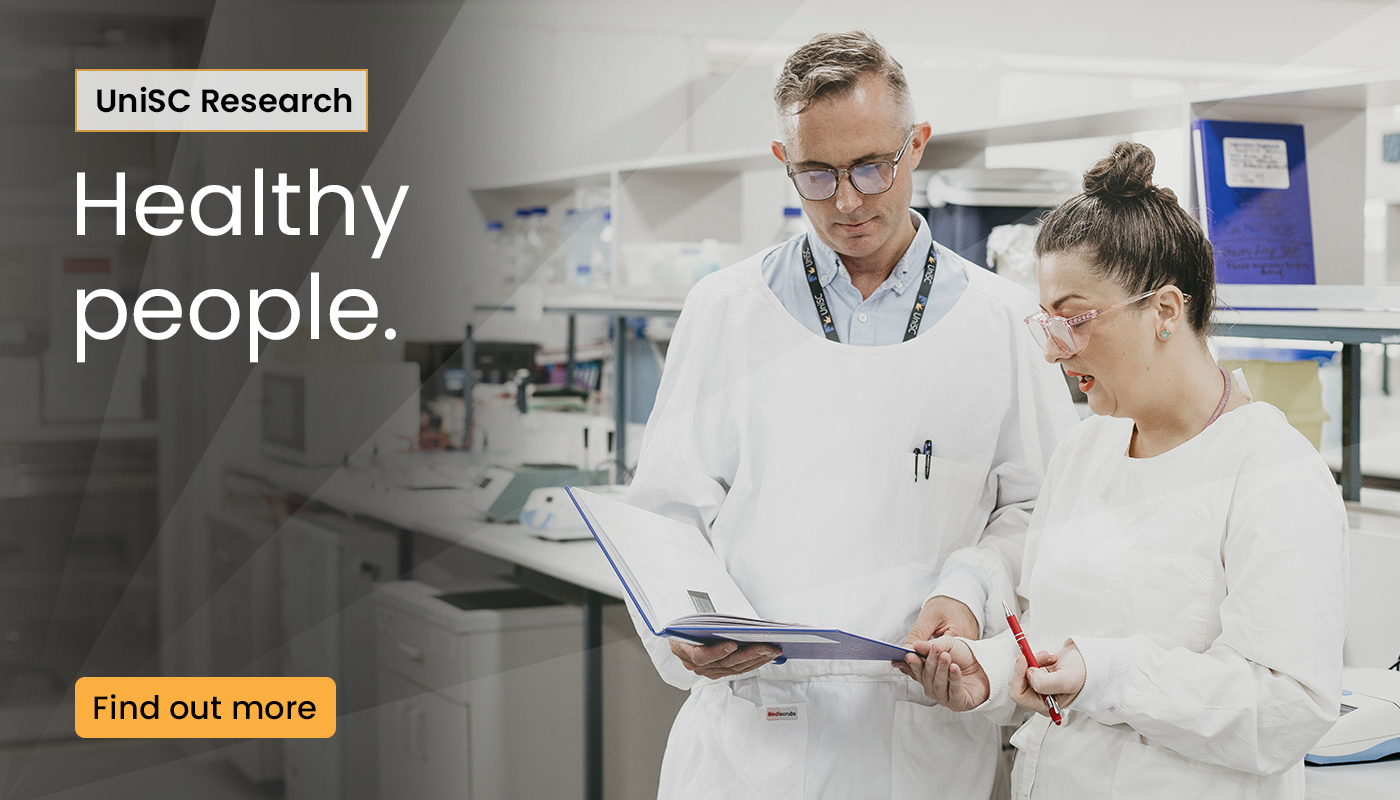
Using the data
The research team hopes to gather thousands of incident reports through the app.
“The key for a successful outcome is to have as many cyclists as possible across Australia using this app.” Dr Scott McLean
“If we can collect and analyse good quality information, we can really start to understand what is going on when cyclists have a crash or a near-miss incident,” says Research Fellow Dr Scott McLean.
“In-depth analysis of this national data set will help to identify issues in the road transport system and gain unique insights into crash trends and contributory factors.
“That might be 'black spots', issues with road user behaviour, road design, or seasonal trends, such as the influence of weather.
“Knowing this will help us to make informed decisions to enhance safety.”
I just love how easy the app platform is to use. It is so simple and clear and the steps are outlined. I think it will make the road a safer place for cyclists and motor users. Daniel Di Domenico
Helping to make the world safer
UniSC’s Centre for Human Factors and Sociotechnical Systems works across a diverse range of areas to understand why accidents and injuries happen and how to prevent them.
Cutting-edge projects focus on evaluating driver cognition and behaviour, designing future vehicle and infrastructure systems, and preventing road trauma.
Other innovative research areas include performance and safety in sport and outdoor recreation systems, disaster resilience, as well as cybersecurity, national security and identify theft.
Media enquiries: Please contact the Media Team media@usc.edu.au


